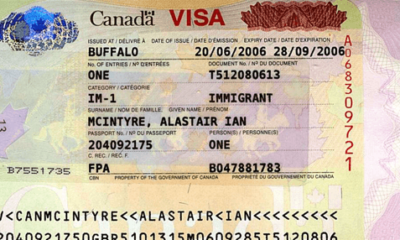Education
Understanding Canada’s IRCC Trusted Institutions Framework for International Students

CIC News has obtained additional information regarding IRCC’s proposed “Trusted Institutions Framework” set to be implemented for Canadian colleges and universities in 2024.
As previously reported by ICEF, Immigration, Refugees and Citizenship Canada (IRCC) is considering a two-tier model for study permit issuance aimed at enhancing the integrity of Canada’s international student program.
Under this framework, Designated Learning Institutions (DLIs) meeting the criteria outlined in IRCC’s Trusted Institutions Framework would enjoy expedited processing for study permits for their international students. DLIs encompass colleges, universities, and other educational institutions authorized by Canadian provincial and territorial governments to admit international students.
While discussions on the proposal have largely remained confidential, CIC News has access to the proposed indicators IRCC is exploring to evaluate DLIs for Trusted Institution status. DLIs would be required to report specific data to IRCC in order to be considered Trusted Institutions.
The proposed DLI-held indicators include:
- Retention rates: The percentage of international students in multi-year programs who remain in their original program after their first year in Canada.
- On-time program completion rate: The percentage of international students who complete their program within the advertised length of study.
- Percentage of revenue from international tuition: The portion of a DLI’s total tuition revenue generated from international student tuition.
- Scholarships awarded to international students from less developed countries: The value and percentage of total scholarships and grants provided to international students from UN Least Developed Countries.
- Funding for international student supports: The value of targeted supports for international students per student and as a percentage of average international student tuition.
- Availability of DLI-administered housing for international students: Total number and percentage of international students residing in institution-administered housing.
- Teacher-student ratio: Average ratio for the ten courses with the highest international student enrollment.
Additional data will be sourced from the Canadian government, including study permit approval rates, student origin countries, and post-graduation outcomes, such as transitioning to a Post-Graduation Work Permit (PGWP). IRCC plans to commence data collection and analysis from all DLIs in the coming months and intends to establish the initial list of Trusted Institutions by spring 2024.
Canada’s attractiveness as an international study destination continues to grow due to its quality education, affordability, work opportunities for students, and prospects for post-graduation immigration. In 2022, Canada welcomed a record 551,405 international students from 184 countries, with a total of 807,750 international students holding valid study permits as of December 31st, 2022.
Despite the housing challenges in Canada, the federal government is considering measures to enhance the benefits of the international student program. This includes exploring a potential cap on the number of international students coming to Canada. While a hard cap has not been confirmed, it is seen as one approach to address issues related to housing, integrity, and system sustainability.
Immigration Minister Marc Miller emphasizes the need to understand and address the broader challenges facing the international student program, beyond housing, in order to maintain the program’s integrity and effectiveness.






















